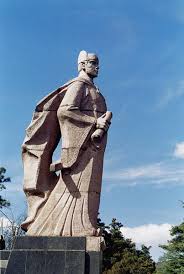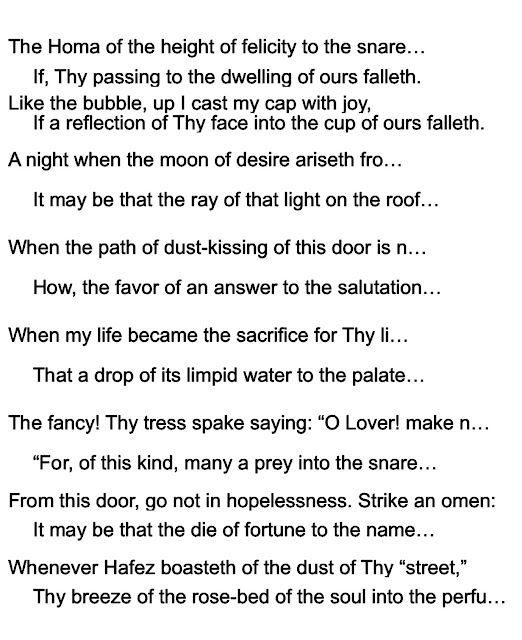I have a friend in Dali City, Yunnan.
The scenery is nothing like what we associate with China with its industries, crowded cities and glittering lights.
Tranquil mountains, streams and villages reminiscent of another century. This calmness has attracted groups of people, from many walks of life, of an intellectual bent.
My friend, from the east of China, had moved to Dali City and occasionally she sends me pictures of the scenery and also of daily life and the narrow streets of ancient villages.
It was JK who brought us together. At the lobby of a hotel near Zocalo in Mexico City, one year ago in April 2019. We had a lovely visit to Teotihuacan.
I had noticed a certain depth in her thought and speech and was to make her acquaintance. We kept in touch through the Pandemic when China had very strict lockdown policies.
My Meskwakia teacher, Pat Brown, had told me many years ago: Do not search for people, those who you need to meet will come your way, be open to receive them.
My friendship with JH from Dali City, Yunnan existed at a level mutually satisfactory of exchanging information of comfort and tranquility. We write whenever we feel like writing but not on any schedule.
Yesterday I was privileged to read some of her thoughts and I was astounded by the clarity of them, as I had foreseen in that morning in Mexico City.
10 am. Miami, 24.07.2020
It was close to midnight when our conversation began and here are some excerpts of her thoughts.
This kind of dialogue has greatly shortened a certain psychological distance. In my opinion, it is a serious communication on a completely exploratory level, so it does not feel strange to the other party at all. I cherish such people very much, those who come to me to take a serious look at their lives themselves. Their struggle for a certain period of time actually contains the life potential of an inflection point. We are not to choose a life attitude, but to live out different possibilities, but in reality, not everyone has such a hope. Some people have some light in at first, but the flames of karma will make light. Gradually extinguished. I hope that this kind of power will be cherished, cared for, and strengthened by people. I have walked through it earnestly and more and more firmly. They all felt my uncompromising on this point. However, I cannot say the same thing to everyone. He is one of them, still carrying light and hope.
There is no easy way for everyone to pursue self-liberation. It depends on whether you can stand up to great karma. If you really pursue freedom, these are not problems at all. It's whether you will be forced to compromise. Don't list your logic, it makes you trapped in your brain. You have to let your heart tell you. "In society, the individual is insignificant and there is no freedom." It's just because you have delusions but no power. Most people end up like you, but they struggle with different degrees. Don't blame the outside.
the moment. She wants to make the rules of the game, no matter how you break or jump.
The freedom I'm talking about may not be the kind of freedom you think. The freedom I am talking about is to be able to live out the will and potential of one's life without being limited to those gross karma, gross karma refers to being trapped by money, career, fame, marriage, parenting, health, and support.
Postscript: In the practice of life exploration and action, it seems vague and impossible to capture the reality, but it needs a solid professional spirit and tenacity. Desire and opportunity are only the first step. Courage is not to take risks or to give up without hesitation. All, not to meet the difficulties, but all kinds of tightrope-like balance can take you forward, inner and outer balance, rational and perceptual balance, even the balance of material needs and spiritual needs, and then accompanied by Every step is becoming clearer and more determined. This determination cannot rely on the voice of any external authority, but comes from the flow that goes deeper and deeper into your life.
What I want to say is that many people stubbornly believe that this path of inner exploration requires abandoning something in the worldly life. This idea itself is a fallacy and it is also limited. It is by no means a sense of renunciation, but to embrace and experience life more completely and without a sense of division.
Finally, let’s have a homemade Matsutake beef cubed shrimp pizza!
Trajectory of Life ..
I think of JH as an idea, a process rather than a person. Thus there is no attachment and no desires except to have seen the evolution of that process. I am very much reminded of Commandatore in Killing of Commandatore by Murakami Haruki. An idea which cannot predict the future but very much in touch with a created reality within, that is my friend JH.
Thus, her words are not a guidance to how to solve/integrate the realities of life but bring the light into enlighten some darker corners of the mind of the other.
I wonder whether being fully aware of the present, one becomes cognizant of what is to come, to a great degree? JH seems to have a vision which is infinite, cutting across space and geography and thus in contrast to the modern society surrounding us with its limited vision mainly concentrated on oneself, the individual, rather than the greater existence of humanity.
Murakami HARUKI "'There's something about your paintings that strikes the viewer's heart from an unexpected angle. At first they seem like ordinary, typical portraits, but if you look carefully you see something hidden inside them.'"
(JH paints, I have seen her watercolours)
“I live on Earth at present, and I don’t know what I am. I know that I am not a category. I am not a thing — a noun. I seem to be a verb, an evolutionary process — an integral function of the universe” — R. Buckminster Fuller
Buckminster Fuller’s own life was inspiring, an architect, a builder and a philosopher. Lived by his own convictions and lived in (experienced) reality. Dedicated to humanity rather than a small limited interest of the individual.
R Buckminister Fuller 1895 -1983, although expelled from Harvard University, was the second world president of MENSA.
Another great American of that era was James Michener. I had the great fortune to meet with him while he was visiting a sugar plantation (researching for one of his books), just a few years before his death.
I remember him talking about the trajectory of life, that unfortunate barrier that modern person puts in their path , in competition to complete certain landmarks by particular age, thus getting old chronologically and intellectually and emotionally, becoming unnecessarily obsessed with age. He had not published anything until he was 40 years of age and spent his formative years wandering around the world. I am 85 years old now, he said, no one calls me a failure but they did when I was wandering around the world, living experiences.
What I consider to be the greatest compliment to my personality, was this from my closest friend, Dr MW in Miami: You are the youngest person that I know. Merci beaucoup, mon petit frere. My own advice to remain young is very simple, as I see it in JH also. A. Be intellectually active . Listen to other intellectuals but come to your own conclusions rather than be a parrot echoing B. Mix with a wide variety of people, all backgrounds and all nationalities and all ages, show them all equal respects.
While I have not discussed the above giant American thinkers, JH and I were brought together by JK, the Indian philosopher whose thoughts are so contemporary.
What is age?
Is it the number of years you have lived? That is part of age;
you were born in such and such a year, and now you are fifteen, forty or sixty years old. Your body grows old—and so does your mind when it is burdened with all the experiences, miseries and weariness of life; and such a mind can never discover what is truth.
The mind can discover only when it is young, fresh, innocent; but innocence is not a matter of age.
It is not only the child that is innocent—he may not be— but the mind that is capable of experiencing without accumulating the residue of experience.
The mind must experience, that is inevitable. It must respond to everything—to the river, to the diseased animal, to the dead body being carried away to be burnt, to the poor villagers carrying their burdens along the road, to the tortures and miseries of life— otherwise it is already dead; but it must be capable of responding without being held by the experience.
It is tradition, the accumulation of experience, the ashes of memory, that make the mind old. The mind that dies every day to the memories of yesterday, to all the joys and sorrows of the past—such a mind is fresh, innocent, it has no age; and without that innocence, whether you are ten or sixty, you will not find God.
Jiddu Krishnamurti
The Book of Life, November 10, Harper SanFrancisco, 1995
JH lives in Dali City, Yunnan.
History: As early as 4,000 years ago, the ancestors of the Bai people settled in this area. In the Second Century AD, it was brought into the territory of the central government of Han Dynasty (206 BC-220AD). Two ethnic states, the Nanzhao State (738-937) in Tang Dynasty (618-907), and the Dali State (937-1253) in Song Dynasty (960-1279), were once established here as well. Throughout ages, it remained an intermediary area linking economic and cultural communications between ancient China and other countries via India. The remains of the Tai He City and the Dali Ancient City bear witness to thousands of years of historic changes once happened here. Together with the Xizhou Town and the Zhoucheng Village, the ancient towns around show the best of historic customs of daily life within the Bai Minority.
Ethnic minorities have inhabited in this area for generations, with the Bai Minority making up the majority of its population (65%).
A small number of Bai are Muslims and are referred to as Bai Hui with Bai as their first language. Hui is the largest minority in China numbering 10 million who are predominantly Muslim. The greatest naval admiral that had ever lived, Zheng He, born Ma He in Yunnan was considered Hui. He was descended from Uzbek/Mongol invaders.
The great admiral of the Ming Fleet
Zheng He. 600 years ago he saw more of the world than most people manage to see now. Never with an intention to conquer but to offer friendship of the Chinese people. Collaboration was Zheng He's style. I have visited Semarang in Jawa, Malacca in Malaysia, Galle in Sri Lanka, Cochin in Kerala, Salalah in Oman.. all in search of Zheng He and his contribution ..


























